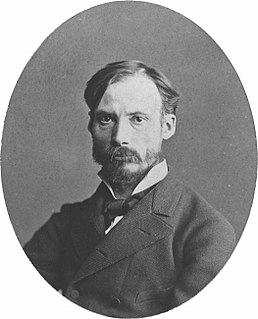A Quote by Anna Brownell Jameson
Even virtue itself, all perfect as it is, requires to be inspirited by passion; for duties are but coldly performed which are but philosophically fulfilled.
Related Quotes
I please myself with imagining a State at least which can afford to be just to all men, and to treat the individual with respect as a neighbor; which even would not think it inconsistent with its own repose if a few were to live aloof from it, not meddling with it, nor embraced by it, who fulfilled all the duties of neighbors and fellow-men. A State which bore this kind of fruit, and suffered it to drop off as fast as it ripened, would prepare the way for a still more perfect and glorious State, which also I have imagined, but not yet anywhere seen.
The whole of life has become an institution, a madhouse in which duties are to be fulfilled not love; in which you have to behave, not be spontaneous; in which a pattern has to be followed, not the overflow of life and energy. That's why the mind thinks and decides everything, because there is danger.
We maintain, and have said in the Ethics, if the arguments there adduced are of any value, that happiness is the realization and perfect exercise of virtue, and this not conditional, but absolute. And I used the term 'conditional' to express that which is indispensable, and 'absolute' to express that which is good in itself.
Why should we desire the destruction of human passions? Take passions from human beings and what is left? The great object should be not to destroy passions, but to make them obedient to the intellect. To indulge passion to the utmost is one form of intemperance - to destroy passion is another. The reasonable gratification of passion under the domination of the intellect is true wisdom and perfect virtue.
Souls that have lived in virtue are in general happy, and when separated from the irrational part of their nature, and made clean from all matter, have communion with the gods and join them in the governing of the whole world. Yet even if none of this happiness fell to their lot, virtue itself, and the joy and glory of virtue, and the life that is subject to no grief and no master are enough to make happy those who have set themselves to live according to virtue and have achieved it.
The more desires you have, the more misery you will create for yourself. Misery is a consequence of desiring - and you go on desiring. In fact, you think that if your desires are fulfilled your miseries will disappear. In the first place they are never fulfilled; in the second place, if they are fulfilled, nothing is fulfilled by their fulfillment. You remain as empty as you have always been - or even more, because up to now you were occupied with a certain desire; now even that is fulfilled. A deep deep emptiness comes to you.
One of the duties of fortitude is to keep the weak from receiving injury; another, to check the wrong motions of our own souls; a third, both to disregard humiliations, and to do what is right with an even mind. All these clearly ought to be fulfilled by all Christians, and especially by the clergy.





































